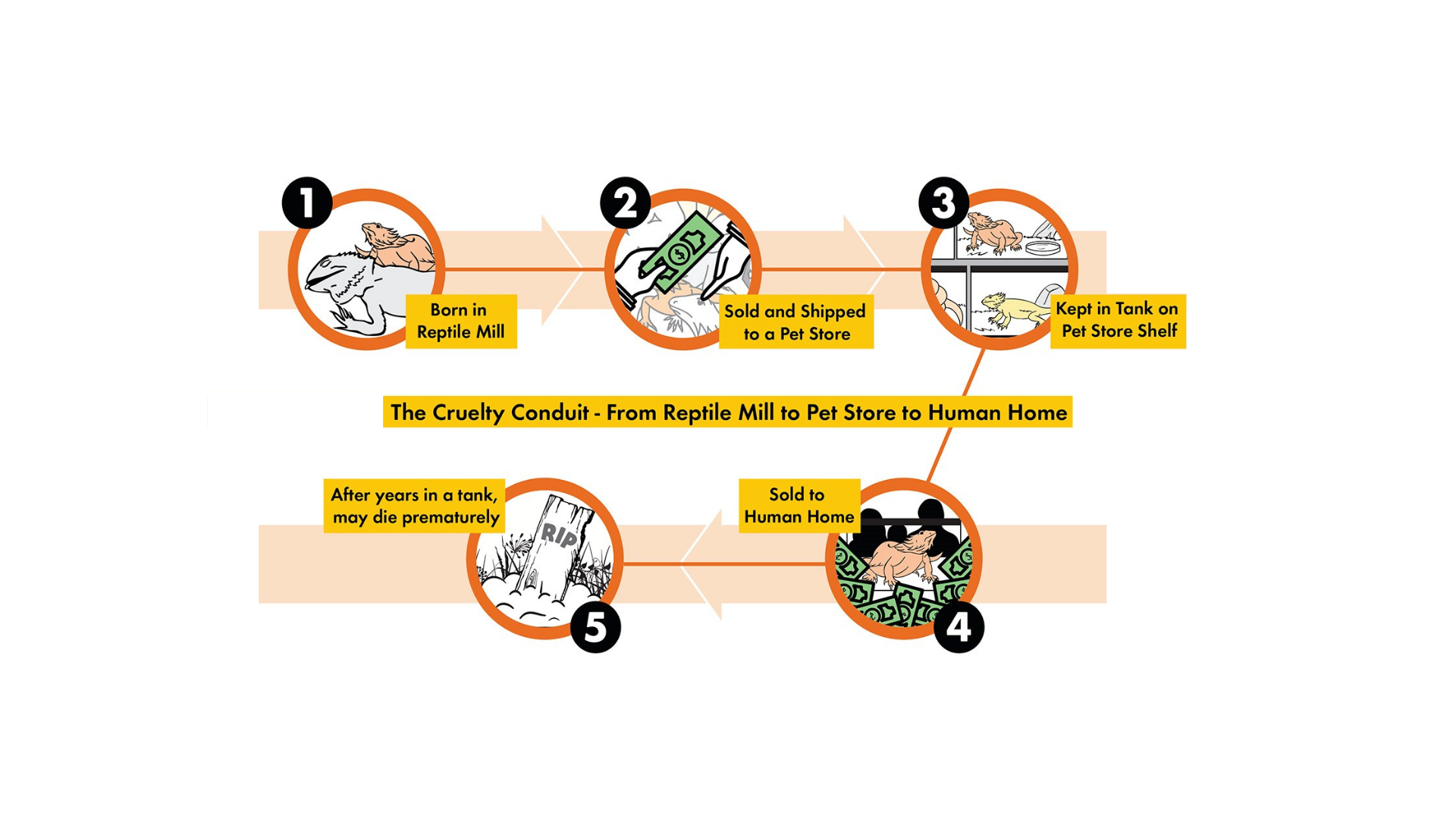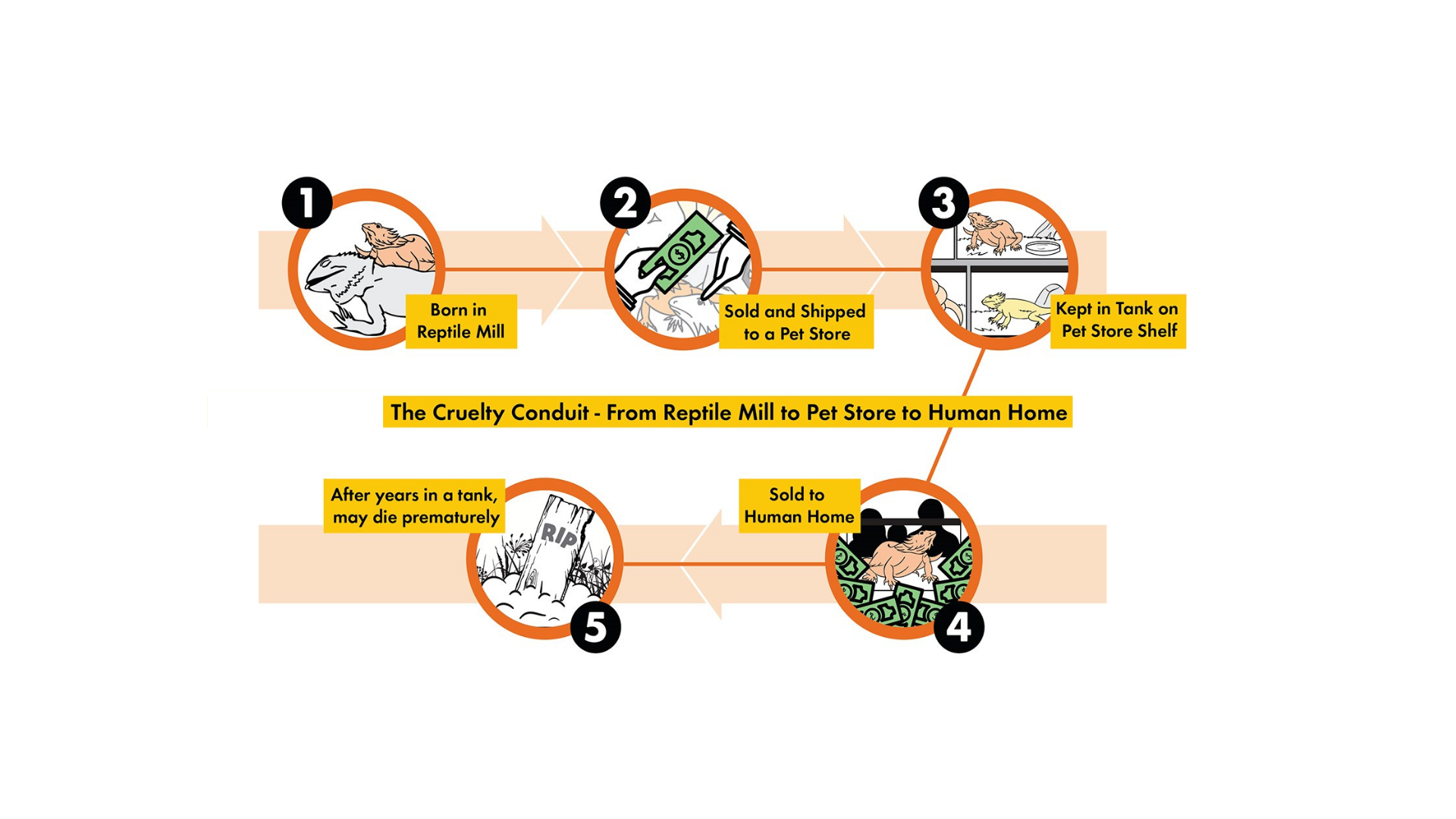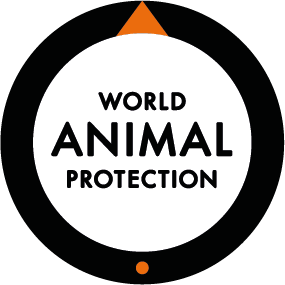Reptile Mill
Bea, a bearded dragon, is born in a reptile mill in Washington State that also breeds lizards, turtles, and frogs.
Though in the wild she’d live in the warm, arid deserts and scrublands of Australia, as a baby she is kept in a dirty, plastic tub crammed full of other animals fighting for limited food and water.
Bea sees other bearded dragons with severed limbs and serious infections. They are ignored by employees until they die.
Pet Store
When she’s old enough to be sold, Bea is tightly packed into a container and shipped in freezing cold weather, without food and water, to a pet store in Maryland. Other animals in her shipment die, from being crushed or dehydration.
Bea is transferred to a small glass tank in the store where she is stacked on a shelf like a chew toy or bag of treats. Below and above her are leopard geckos and ball pythons.
Across the aisle, Bea sees hamsters sleeping in a pile. One of the hamsters is sick, and though employees ask the manager to take her to the veterinarian, their requests are denied. Bea watches as the hamster stops walking around her cage, then refuses food and water, until finally she stops moving. The hamster is put in a freezer with other dead animals.
At Home
After several weeks, a family with two small children see Bea. The children excitedly plea for their parents to let them get Bea. Noting that the tag on her tank says the experience level required to care for a bearded dragon is “beginner,” the family purchases her.
For the next five years, Bea lives in the equivalent of a shoebox, a tiny fraction of the size of the desert she’d explore in Australia. She dies long before her natural lifespan in the wild.


How Can You Help
Bea’s story is fictional but the suffering of the tens of thousands of animals like her is real. Tell PetSmart that animals aren’t products and don’t belong on store shelves. Urge PetSmart to take the first step to end the wildlife trade by phasing out the sale of reptiles and amphibians.
